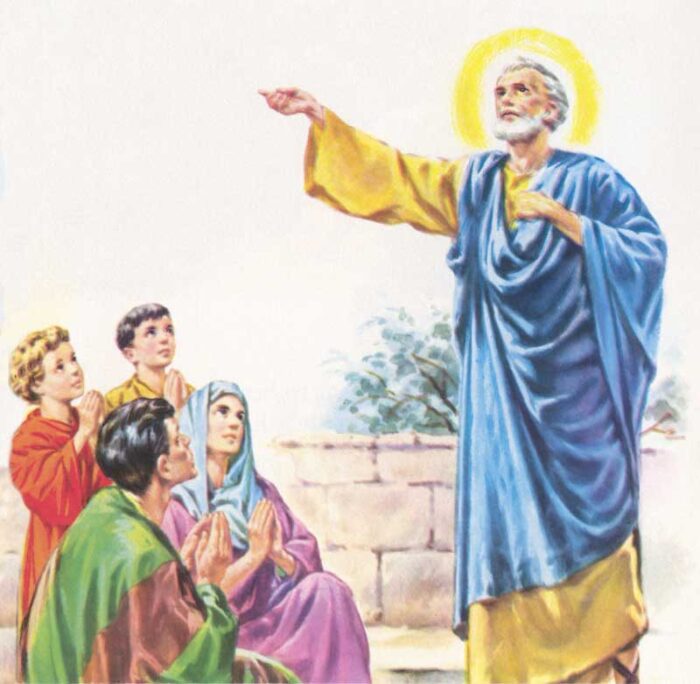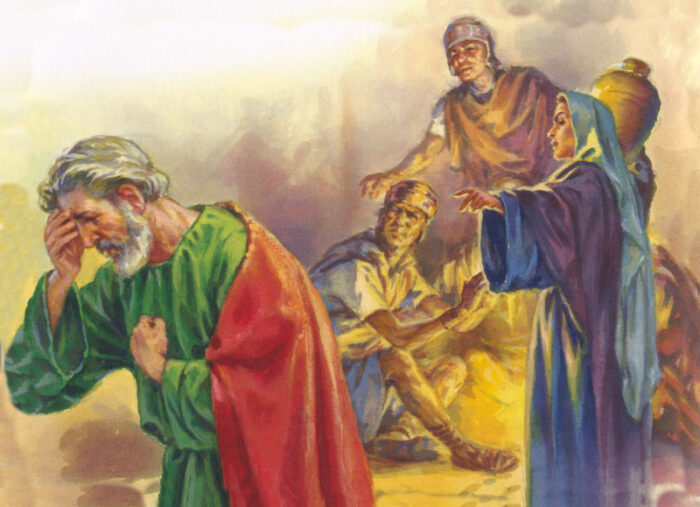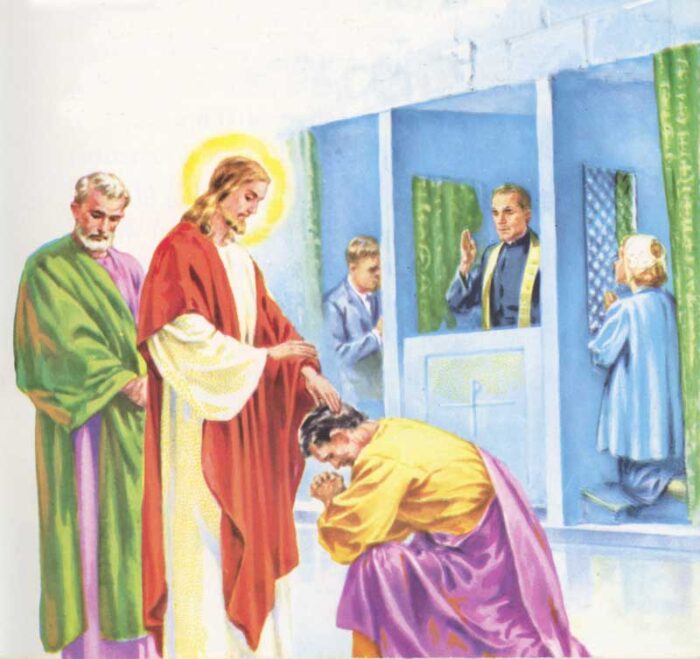Catechism Lessons
according to the Tradition of the Gospel and the Church
“Go, teach all nations...teaching them to observe all that I have commanded you.”
Holy Gospel of Jesus Christ,
St. Matthew 28:19-20
Lessons 13 to 16 ⇓
Lessons 17 to 20 ⇓
Lessons 21 to 24 ⇓
Lesson 13: The Theological Virtues cont.

152. — What is charity?

153. — How do we show that we love God?
We show that we love God by:
1. Observing His commandments.
2. Being disposed to lose everything rather than offend Him.
3. Loving our neighbor as ourselves.

154. — What is meant by the word neighbor?

155. — Why must we love our neighbor?

156. — Must we love even our enemies?

157. — What does it mean to love our neighbor as ourself?

158. — How can we recognize that we love our neighbor?

159. — What are the spiritual works of mercy?
The spiritual works of mercy are:
1. To instruct the ignorant in the truths of religion.
2. To give good advice and good example.
3. To comfort the sorrowful.
4. To admonish sinners.
5. To forgive offenses.
6. To patiently bear our neighbor’s faults.
7. To pray for the living and the dead.

160. — What are the corporal works of mercy?
The corporal works of mercy are:
1. To feed the hungry.
2. To give drink to the thirsty.
3. To clothe the naked.
4. To ransom captives.
5. To give hospitality to strangers.
6. To visit the sick and the prisoners.
7. To bury the dead.
Click on the dots to match the text to the audio.
Audio of the Lesson
Glossary
Charity: from the Latin “caritas”, which means “tenderness”. St. John the Evangelist described God with these words: Deus caritas est, God is charity. God is the only object worthy of all our love and He alone can fulfill every need of our heart and soul. St. Augustine says, “You created us for You O God, and our hearts are restless until they rest all in You.”
The more we are filled with Christian charity, the more we become like God. The word charity is synonymous with the word love. The virtue of charity is the queen of all virtues and all virtues are worthless if they are not inspired by love.
Lesson 14: The Church

161. — What means are given men to enable them to share in the fruits of the Redemption?

162. — What is the Church?

163. — Who established the Church?

164. — Who is the invisible Head of the Church?
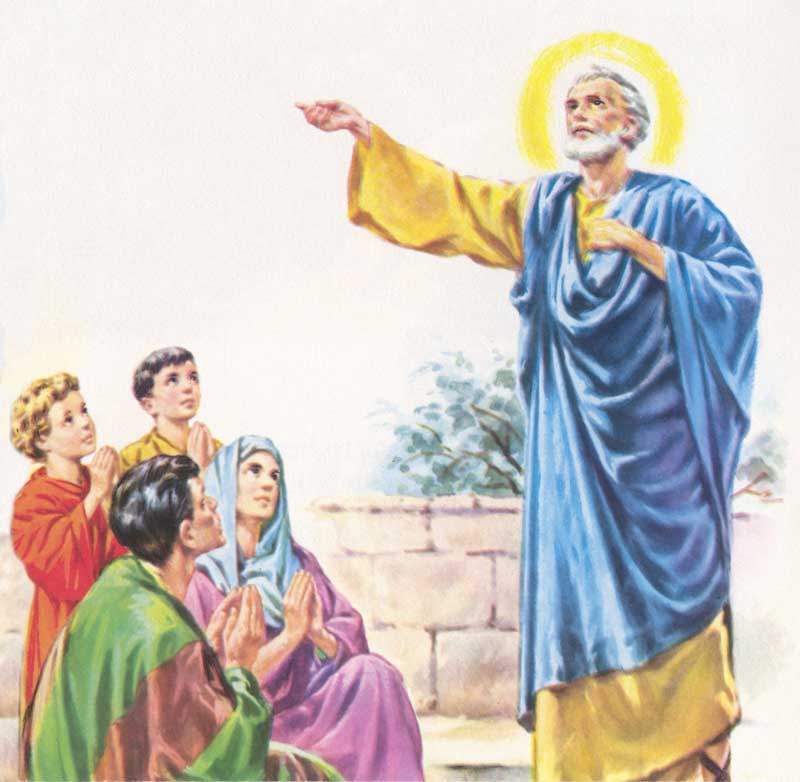
165. — Who is the visible Head of the Church?

166. — Why is the Father of Christianity the visible Head of the Church?

167.— Who are the successors of the other Apostles?

168. — Are there several Churches established by Jesus Christ?

169. — Why did Jesus Christ found His Church?

170. — Are all men obliged to belong to this one Church founded by Jesus Christ?
Click on the dots to match the text to the audio.
Audio of the Lesson
Glossary
Church: from the Latin “eclesia”, which means “assembly of the faithful”.
Society: In this context, the word means “together, meeting”.
To profess the faith of Jesus Christ is to believe that Jesus Christ is the Son of God made man; and to believe all the truths that He has taught us. It is to live according to the examples and maxims He has given us in His Gospel.
Legitimate Pastors are those who have received from God the right to lead us in the fulfillment of Christian duties. They are: The Father of Christianity, the bishops and the priests.
The Supreme Pontiff is the head of all pontiffs or bishops.
The word bishop comes from the Christian Latin “episcopus” and means “head of a diocese”. The word “episkopos”, from the ancient Greek, means “one who watches over”. For the bishop must be a vigilant watchman to watch over the priests, the faithful, and guard them as a good shepherd guards his flock.
Lesson 15: The Attributes and Powers of the Church

171. — What are the attributes of the Church?

172. — What do we mean by the authority of the Church?

173. — What do we mean by the infallibility of the Church?

174. — When is the teaching of the Church infallible?

175. — What do we mean by the indefectibility of the Church?

176. — In which person are these three attributes of the Church found?

177. — What are the marks by which one may recognize the Church?

178. — How is the Church one?

179. — How is the Church holy?

180. — How is the Church universal or catholic?

181. — How is the Church apostolic?
Click on the dots to match the text to the audio.
Audio of the Lesson
Glossary
Infallibility comes from a Latin word and designates the impossibility of deceiving oneself and others.
Truths of faith are truths that we are obliged to believe in order to be saved.
Truths of morality are those truths that have to do with what we must do or avoid in order to be saved.
By marks of the Church, it is necessary to understand the signs with which one can distinguish the Church founded by Jesus Christ, from the Churches founded by men.
Lesson 16: The Sacraments in general

182. — What is a sacrament?

183. — How many sacraments are there?

184. — From what source do the sacraments receive the power to give grace?

185. — What graces do the sacraments give?
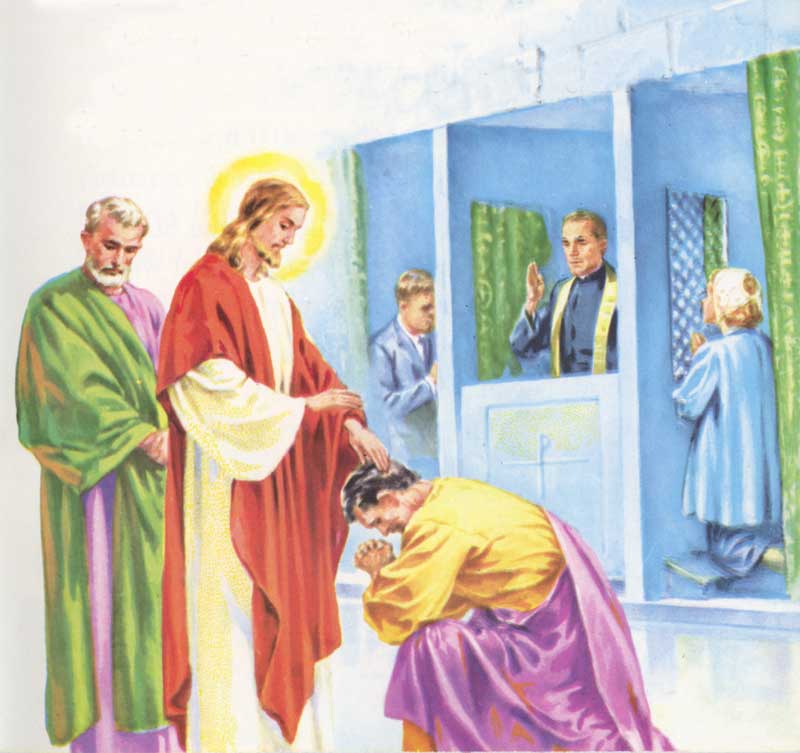
186. — Which sacraments give sinners the grace of justification?

187. — Why are Baptism and Penance called sacraments of the dead?

188. — Which sacraments increase sanctifying grace in our soul?

189. — Why are these five sacraments called sacraments of the living?

190. — What sin do we commit if we receive a sacrament of the living when in the state of grievous sin?

191. — Do the sacraments give another grace besides sanctifying grace?

192. — What is sacramental grace?

193. — Do the sacraments always give grace?

194. — Which sacraments imprint an indelible mark in the soul?

195. — Why does this character remain in the soul even after death?
Click on the dots to match the text to the audio.
Audio of the Lesson
Glossary
The word sacrament is borrowed from the religious Latin “sacramentum” which means “sacred thing”.
A sensible sign is a sign that falls under our senses, that is to say that we perceive easily by our physical faculties.
Instituted means: established.
The word virtue here means: power, might.
To give sinners the grace of justification means to make them righteous or holy by restoring to them the sanctifying grace which they had lost through sin.
Sacramental means: proper to the sacrament.
Lesson 17: Baptism

196. — What is Baptism?
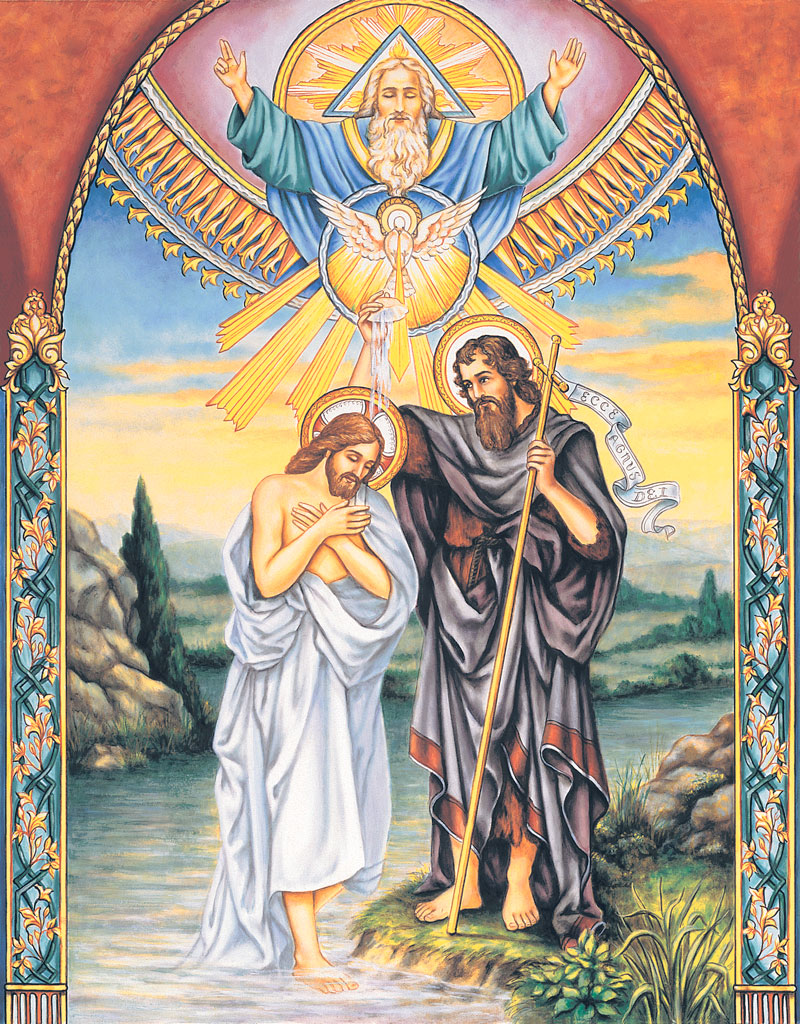
197. — Are actual sins remitted by Baptism?

198. — Is Baptism necessary for salvation?

199. — Who can administer Baptism?

200. — How is Baptism given?

201. — How many kinds of Baptism are there?

202. — When Baptism of water cannot be received, may Baptism of desire compensate for it?

203. — What is Baptism of blood?

204. — Do Baptism of desire and Baptism of blood produce the same effects as Baptism of water?

205. — What have we renounced by Baptism?

206. — Why is the name of a Saint given to the one who receives Baptism?

207. — Why are a godfather and godmother given to the one who is baptized?

208. — What are the obligations of the godfather and godmother?
The obligations of the godfather and godmother are:
1. To instruct the child in his religious duties, if the parents neglect to do so or if they die.
2. To see, if necessary, that the child fulfills the promises made at Baptism.
Click on the dots to match the text to the audio.
Audio of the Lesson
Glossary
The word “baptism” comes from the Christian Greek “baptismos” which means: the action of plunging into water to wash away original sin.
By natural water, we mean water as it is found in nature. Rainwater, sea water, river water, pond water, spring water, melted snow, is natural water.
By “the works of the devil”, it is necessary to understand all kinds of sins, because evil is the work of the devil as much as good is the work of God. And also it is necessary to imply all that comes from the pride of the man.
By “the pomps of the devil”, we must understand the vanities of the world, that is to say all that distracts men from the service and love of God, such as the attachment to riches and honors.
Maxims are wrong if what they command is wrong, e.g., “Above all, one must become rich.” “One must enjoy life and give oneself all possible pleasures to be happy.” etc.
The names godfather and godmother mean: spiritual parents.
Lesson 18: Confirmation

209. — What is Confirmation?

210. — By whom is Confirmation administered?

211. — How is Confirmation administered?

212. — What is meant by anointing, in the form of a cross, the forehead of the persons confirmed?

213. — Why does the bishop give the person he confirms a slight blow on the cheek?

214. — Is it necessary to be in the state of grace to receive Confirmation worthily?

215. — What special preparation should be made to receive Confirmation?

216. — Is it wrong to neglect to receive Confirmation?
Click on the dots to match the text to the audio.
Audio of the Lesson
Glossary
See: The Gifts of the Holy Spirit
See: The Fruits of the Holy Spirit
The word “confirmation” comes from the Christian Latin “confirmatio” which means “strengthening”. This name designates well the effect of this sacrament which is to strengthen in souls the grace of baptism.
The strength that is given to us by confirmation is a strength of the soul and not of the body.
Peace, a fruit of the Holy Spirit, is the reward for the works accomplished and the sufferings endured for God.
To know the nature of confirmation is to know what it produces in our souls.
Lesson 19: The Effects of Confirmation

217. — What are the effects of Confirmation?

218. — What are the gifts of the Holy Ghost?

219. — Why do we receive the gift of wisdom?

220. — What is the effect of the gift of understanding?

221. — Why do we receive the gift of counsel?

222. — Why do we receive the gift of fortitude?

223. — What does the gift of knowledge give us?

224. — What do we mean by the gift of piety?

225. — What is the effect of the gift of the fear of the Lord?
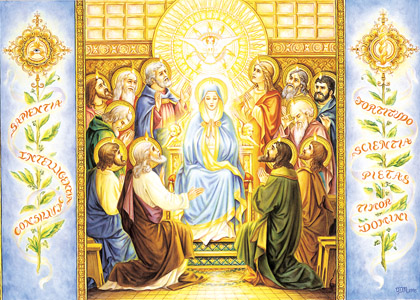
226. — What are the fruits of the Holy Ghost?
Click on the dots to match the text to the audio.
Audio of the Lesson
Glossary
By wisdom, children usually mean the opposite of dissipation; that is not the meaning of the word here. Wisdom, a gift of the Holy Spirit, means “proper appreciation”. Of the seven gifts, wisdom is the highest because it is the lived balance of the hierarchy of values, and self-knowledge in relation to God.
Intelligence helps us to distinguish good from evil through the teachings and counsels of the Gospel.
The gift of fortitude is also a particular grace to be able to persevere in the accomplishment of God’s will. It gives us the courage to overcome obstacles.
The knowledge that Confirmation gives us is a supernatural science, not a natural science.
The word piety comes from the Latin word “pius” which means: one who diligently fulfills his duties towards God and his neighbor. This piety is based on generosity and honesty of heart.
By the things of God, we mean: the truths of the Faith, prayer, religious services, the sacraments, etc.
To savor the things of God is to love them, to seek them, to delight in them, etc.
Conferred means “given”.
Lesson 20: The Sacrament of Penance

227. — What is the sacrament of Penance?

228. — Does the sacrament of Penance restore the soul to the friendship of God at the same time it purifies it from sin?

229. — When do we receive the sacrament of Penance?

230. — Do priests have the power to remit sins committed after Baptism?

231. — How do priests exercise the power to forgive sins?

232. — What must we do to prepare ourselves well to receive the sacrament of Penance?
To prepare ourselves well to receive the sacrament of Penance, we must do five things:
1. Examine our conscience.
2. Have sorrow for our sins.
3. Make a firm resolution never to offend God again.
4. Confess our sins to the priest.
5. Accept the penance that the priest gives us.
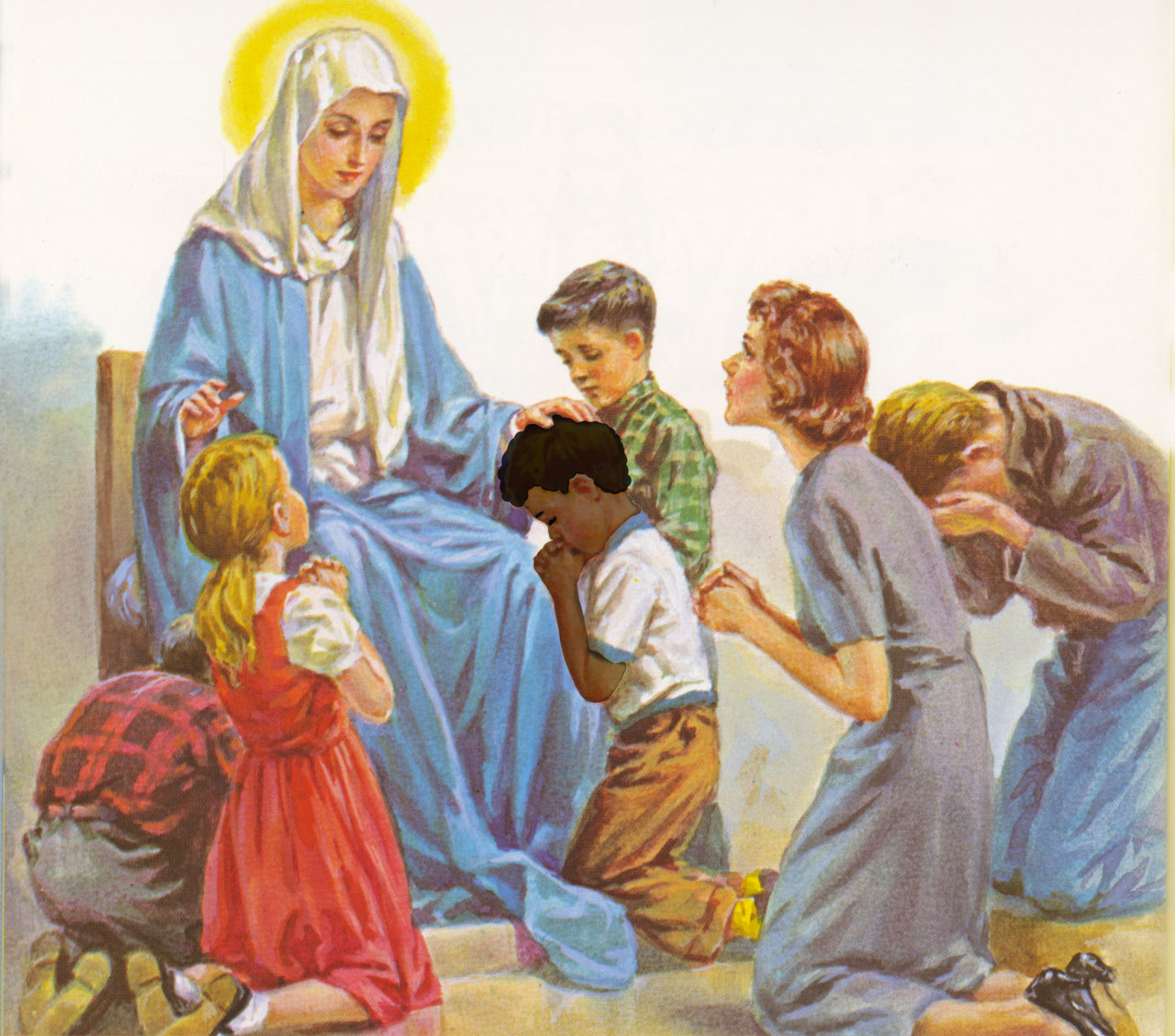
233. — May we sometimes receive absolution for our sins without confessing them?

234. — In what does the examination of conscience consist?

235. — What means must we take to examine our conscience well?

236.— What should we do before beginning our examination of conscience?
Click on the dots to match the text to the audio.
Audio of the Lesson
Glossary
The word “penance” comes from the Latin “paenitens” which means: one who feels regret and repentance.
To remit sins means: to erase them, to forgive them.
Absolution comes from the Christian Latin “absolutio”, action of discharging. To absolve, from the Latin “solvere”, to dissolve.
To withhold sins is to refuse to grant forgiveness.
To prepare oneself to receive the sacrament of Penance, is to dispose oneself by recollection and contrition, to receive the sacrament of Penance well.
We call “particular duties of one’s state” what each one is required to do according to the condition in which he lives and according to the responsibilities with which he is charged.
Lesson 21: Contrition

237. — What is contrition?

238. — Make an act of contrition.

239. — Is contrition absolutely necessary to obtain the forgiveness of sins?

240. — What must we do to have contrition?

241. — What are the qualities of contrition?

242. — What do we mean by interior contrition?

243.— What do we mean by supernatural contrition?

244. — What do we mean by universal contrition?

245. — What do we mean by sovereign contrition?

246. — Why must we be sorry for our sins?
We must be sorry for our sins because:
1. Sin is the greatest of all evils and an offense against God our Creator, Father and Redeemer.
2. Sin caused the death of Jesus Christ.
3. Venial sin weakens the life of grace in us and predisposes the soul to more grievous falls.
4. Mortal sin deprives us of the happiness of heaven and makes us deserving of the eternal torments of hell.

247. — How many kinds of contrition are there?

248. — What is perfect contrition?

249. — What is imperfect contrition?

250. — Is imperfect contrition sufficient for a worthy confession?
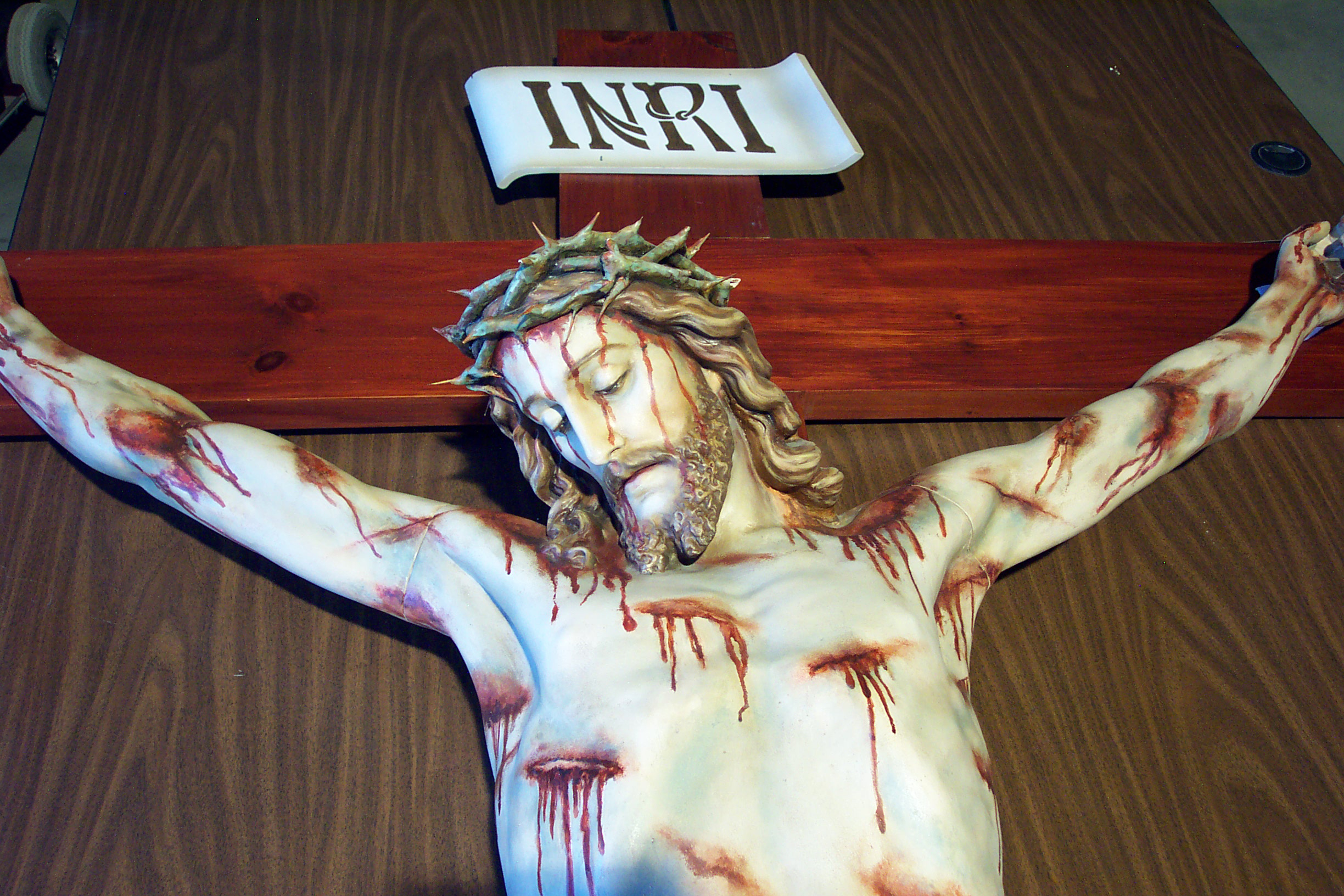
251. — What should a person in danger of death do if he feels guilty of mortal sin and cannot obtain a priest to hear his confession?

252. — What do we mean by the firm purpose of sinning no more?

253. — What do we mean by the near occasions of sin?
Click on the dots to match the text to the audio.
Audio of the Lesson
Glossary
The word “contrition” comes from the Christian Latin “contritio” and means: deep sorrow, crushed heart. This word expresses well the feeling felt by the Christian who has a sincere repentance for his faults, a great sorrow for offending God.
By the word “heartily”, which is used in the Act of Contrition, we express that our regret for having sinned is lively and deep.
Mortal sin is the greatest of all misfortunes because it endangers our eternal salvation.
Lesson 22: Confession and Satisfaction

254. — What is confession?

255. — What sins are we obliged to confess?

256. — What are the chief qualities of a good confession?

257. — When is our confession humble?

258. — When is our confession sincere?

259. — When is our confession entire?

260. — What should we do if we cannot remember the number of our sins?

261. — If we forget to confess a grievous offense through no fault of our own, is our confession good?

262. — Is it a grievous offense to willfully conceal a mortal sin in confession?

263. — What must we do if we have willfully concealed a grievous offense in confession?

264. — Why does the priest give a penance after confession?

265. — Does the sacrament of Penance remit all punishment due to sin?

266. — Why does God require a temporal punishment as satisfaction for sin?

267. — What are the means by which we make satisfaction to God for the temporal punishment due to sin?
Click on the dots to match the text to the audio.
Audio of the Lesson
Glossary
The word “humble”, from the Latin “humilis” means: close to the earth. Through humility we recognize that God is everything, and that we are nothing. God is beauty, goodness, infinite Love and we, we are capable of all sins. The good that is in us comes from the pure goodness of God towards us.
The word “sincere”, from the Latin “sinceritas” means: purity. Our contrition is sincere when it is not inspired by a selfish motive. Sincere contrition is the sorrow of offending God, infinitely good and lovable.
The word “whole” means that our contrition must extend to all our sins.
Lesson 23: How to Make a Good Confession
268. — What should we do when we enter the confessional?
Upon entering the confessional, we should kneel down, make the sign of the cross, and recite, in abbreviated form, the Confiteor…
— See the complete Method:

269. — After the Confiteor what is to be done?
After the Confiteor:
1. we must say how long ago we went to confession, whether we received absolution the last time and whether we have accomplished the penance imposed
2. then accuse all the grievous sins committed since the last absolution and the venial sins which one wishes to mention.

270. — When we have finished accusing our sins, what should we do?

271. — When the confessor questions us, how should we answer?

272. — Is it permissible to accuse again one or more sins which we have already accused in previous confessions?

273. — What should we do while the priest is giving us absolution?

274. — What is to be done after receiving absolution?
Click on the dots to match the text to the audio.
Audio of the Lesson
Glossary
The word “Confiteor” is a Latin word that means “I admit, I confess” my sins.
Lesson 24: Indulgences

275. — What is an indulgence?

276. — Is indulgence a forgiveness of sin, or a permission to commit sin?

277. — How many kinds of indulgences are there?

278. — What is a plenary indulgence?

279. — What is a partial indulgence?

280. — How does the Church, by means of indulgences, remit the temporal punishment due to sin?

281. — What must we do to gain an indulgence?
Click on the dots to match the text to the audio.
Audio of the Lesson
Glossary
Indulgence, from the Latin “indulgentia” means: forgiveness or remission of sin.
Partial remission means: only a part of the temporal punishment due to the sin is forgiven.
Plenary means: fully remitted. That is, the whole temporal punishment due to the sin is remitted, so that the one who would die immediately after having won a plenary indulgence would not go to purgatory for one moment but would go straight to heaven. But one never knows when an indulgence is earned with this degree of perfection.
The merits of Jesus Christ are the price of the actions of His life, His works, His prayers, His sufferings and His death. It is therefore an infinite price.
The satisfactions of the Blessed Virgin and the Saints are their acts of penance and love of God on earth and generally all their good works.
Click here to download the complete Catechism Course.
This course is offered to you free of charge by Editions Magnificat.
You may download and print it for your personal use.
If you wish to make multiple copies, please request permission from:
apostles@magnificat.ca
THANK YOU!
© All rights reserved.
“When you consider the goal with great love, you enter the career with great courage.”
Saint Augustine


